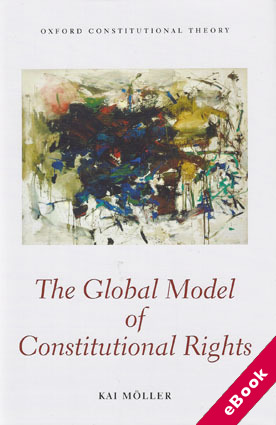
The device(s) you use to access the eBook content must be authorized with an Adobe ID before you download the product otherwise it will fail to register correctly.
For further information see https://www.wildy.com/ebook-formats
Once the order is confirmed an automated e-mail will be sent to you to allow you to download the eBook.
All eBooks are supplied firm sale and cannot be returned. If you believe there is a fault with your eBook then contact us on ebooks@wildy.com and we will help in resolving the issue. This does not affect your statutory rights.
Since the end of the Second World War and the subsequent success of constitutional judicial review, one particular model of constitutional rights has had remarkable success, first in Europe and now globally.
This global model of constitutional rights is characterized by an extremely broad approach to the scope of rights (sometimes referred to as 'rights inflation'), the acceptance of horizontal effect of rights, positive obligations, and increasingly also socio-economic rights, and the use of the doctrines of balancing and proportionality to determine the permissible limitations of rights.
Drawing on analyses of a broad range of cases from the UK, the European Court of Human Rights, Germany, Canada, the US, and South Africa, this book provides the first substantive moral, reconstructive theory of the global model.
It shows that it is based on a coherent conception of constitutional rights which connects to attractive accounts of judicial review, democracy and the separation of powers. The first part of the book develops a theory of the scope of rights under the global model. It defends the idea of a general right to personal autonomy; a right to everything which, according to the agent's self-conception, is in his or her interest.
The function of this right is to acknowledge that every act by a public authority which places a burden on a person's autonomy requires justification. The book concludes by demonstrating a theory of the structure of this justification which offers original and useful accounts of the important doctrines of balancing and proportionality.